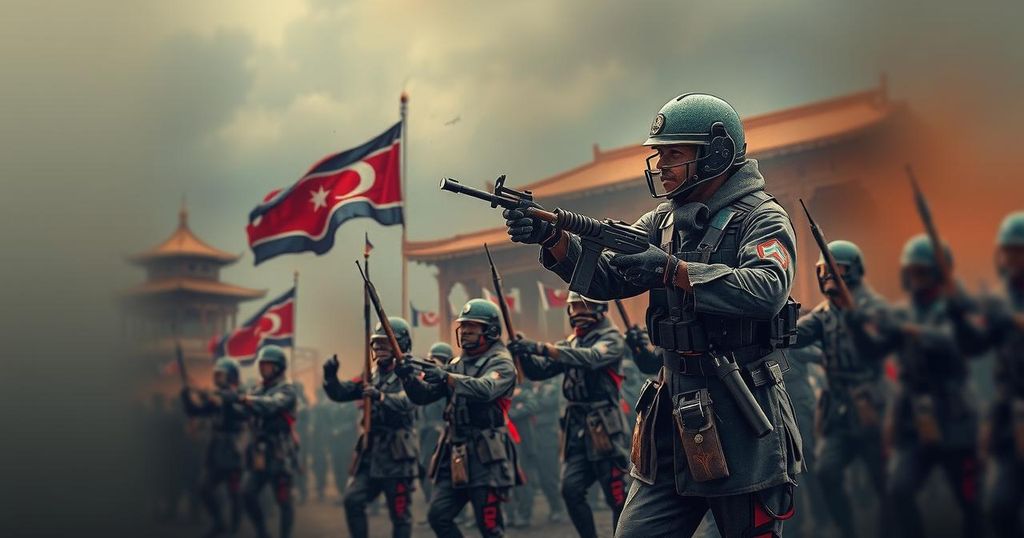Understanding Martial Law: Insights from South Korea’s Recent Enforcement
Martial law, a shift of power to military control during crises, recently became a focal point due to President Yoon Suk Yeol’s brief declaration in South Korea, which sparked backlash and a quick repeal. This measure highlights the potential suspension of civil rights and military governance, prompting Americans to seek understanding of its legal and ethical implications amidst reviews of historical precedents.
Martial law, a temporary measure that transfers power from civilian authorities to military forces, is a critical concept often invoked during extraordinary crises such as wars, civil unrest, or significant natural disasters. Although martial law is not currently enforced in the United States, it has recently gained attention due to its brief enforcement in South Korea, leading many Americans to seek clarity about the implications and scope of such a declaration.
In South Korea, President Yoon Suk Yeol’s decision to declare martial law for a brief six-hour period triggered widespread criticism and concerns reminiscent of the country’s historical experiences with military dictatorships. The move saw the deployment of heavily armed military personnel in Seoul, which led opposition parties to swiftly challenge the declaration through impeachment motions. Even during the short span of martial law, lawmakers faced extreme measures to access the parliament, with reports of political figures actively confronting the military to maintain control over the situation.
Martial law is typically declared in response to situations where standard government functions are compromised, such as during a war, significant civil disturbances, natural disasters, or political instability. When imposed, this extraordinary authority results in several changes, including the suspension of civil rights, restricting movement through curfews, and instituting military trials for legal matters. Such measures are enacted to restore order and ensure security, albeit at the potential cost of personal freedoms.
The concept of martial law is pivotal in discussions of governance during emergencies. It signifies a shift in authority from civilian law enforcement to military control, designed to restore stability amidst chaos. The recent declaration of martial law in South Korea has reignited debates surrounding the ethical implications, historical precedents, and the potential repercussions such stringent measures could have on civil liberties. In this context, understanding what martial law entails and the circumstances prompting its declaration is of paramount importance for citizens in any country, including the United States.
In conclusion, martial law represents a significant alteration in the governance structure that prioritizes military authority during crises. The recent case in South Korea serves as a stark reminder of the delicate balance between ensuring public safety and preserving civil liberties. As discussions about martial law resurface in the United States, it is vital for citizens to be informed about its implications, potential restrictions on rights, and the circumstances that may lead to its imposition.
Original Source: www.statesman.com








Post Comment